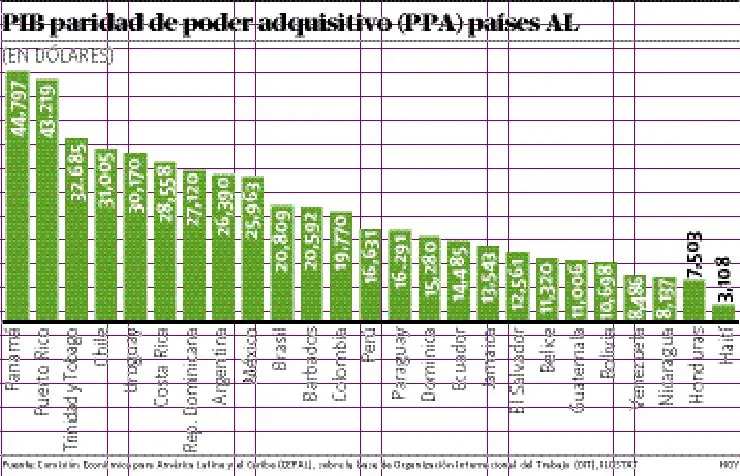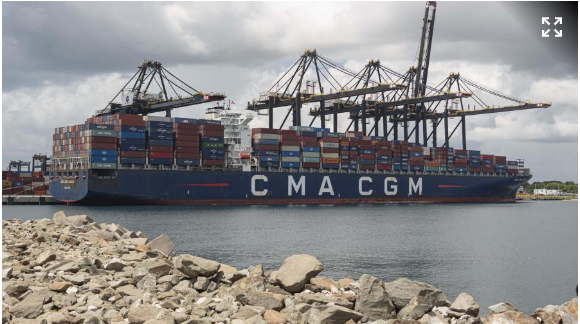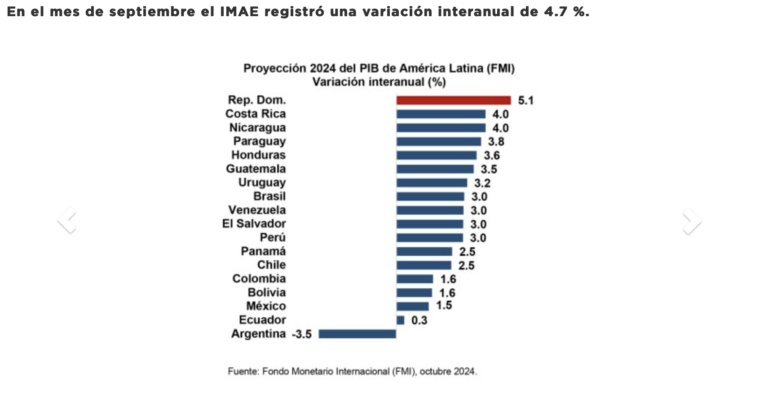
GDP purchasing power parity (PPP) Latin American countries
With a higher GDP per capita PPP, the Dominican Republic surpasses nations with strong economies such as Argentina, Mexico, Brazil, Colombia, Peru and Paraguay
According to a list of 190 countries published by Global Finance magazine, the Dominican Republic has become the seventh richest country in Latin America and the Caribbean, with a Gross Domestic Product per capita measured in Purchasing Power Parity (PPP) of US$27,120.
The country outperforms nations with strong economies such as Argentina, with a GDP per capita-PPP of $26,390, Mexico ($25,963), Brazil ($20,809), Colombia ($19,770), Peru ($16,631) and Paraguay ($16,291).
The six countries that surpass the Dominican Republic are Panama, which leads the ranking with a GDP per capita PPP of $44,797, Puerto Rico ($43,219), Trinidad and Tobago ($32,685), Chile ($31,005), Uruguay ($30,170) and Costa Rica ($28,558).
At the global level, the ranking is led by Luxembourg, with a GDP per capita-PPP of 143,743 dollars. Haiti, which shares the island of Santo Domingo with the Dominican Republic, occupies the last place on the regional level and the 170th position in the world, with a GDP per capita-PPP of 3,108.
The Dominican Republic has positioned itself as the seventh richest country in the region and the seventy-first in the world thanks to its vibrant economic growth over decades and the stability of its currency.
It is important to note that purchasing power parity has a special value when comparing wealth between countries because it is one of the most appropriate measures, since, unlike nominal GDP, it allows for decoupling the sharp variations that may occur in the exchange rate between a local currency and the dollar from one year to the next.
In other words, it is an indicator that eliminates what is defined as monetary illusion, which is linked to a possible rather sudden devaluation or revaluation of a given currency against that of the United States, particularly considering that the majority of the inhabitants of a given nation receive their salaries and make their purchases with their own currency instead of using dollars, even though imported goods are expressed in dollarized prices.
Source:





